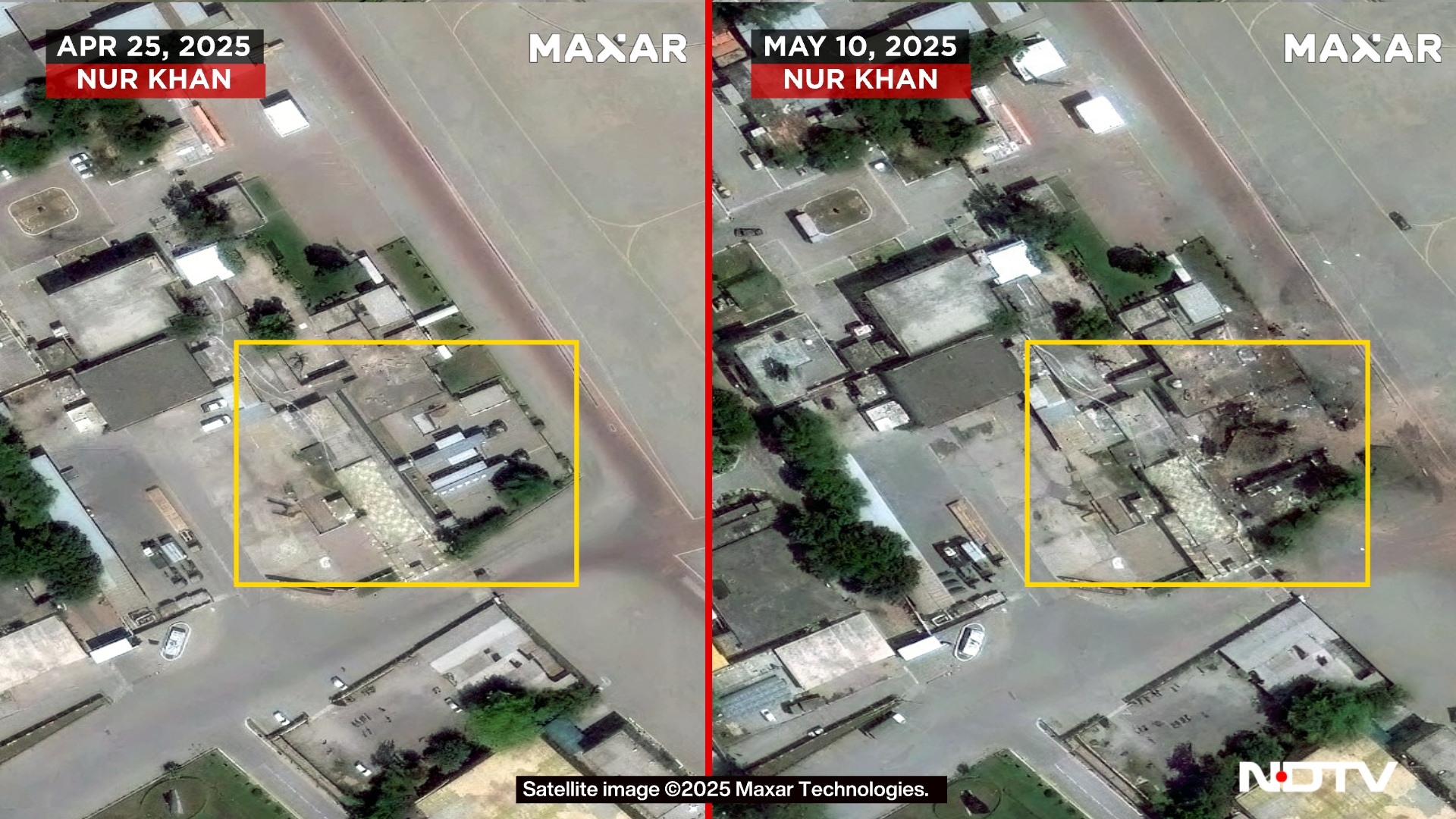New Delhi:
Pakistan’s Prime Minister Shehbaz Sharif in a rare public admission confirmed Indian ballistic missiles struck the Nur Khan Airbase and other targets inside Pakistan during the early hours of May 10. Speaking at a ceremony in Islamabad, Mr Sharif recounted a 2:30 AM call from the Chief of Army Staff, General Syed Asim Munir, informing him of the missile attacks launched by India.
“In the intervening night of May 9-10, around 2:30 AM, General Asif Munir called me through a secure phone and told me India has launched its ballistic missiles. One has landed at the Nur Khan airbase and some at other areas,” Prime Minister Sharif said in a public address.
The Nur Khan Airbase, located between Rawalpindi and Islamabad, is a strategic military facility long central to Pakistan’s air operations. Previously known as Chaklala Airbase, it was also targeted by Indian forces during the 1971 Indo-Pakistan war.

“Pakistan PM Shehbaz Sharif himself admits that General Asim Munir called him at 2:30am to inform him that India had bombed Nur Khan Air Base and several other locations. Let that sink in – the Prime Minister was woken up in the middle of the night with news of strikes deep inside Pakistan. This speaks volumes about the scale, precision, and boldness of #OperationSindoor,” BJP spokesperson Amit Malviya wrote on X, sharing a video of the Pakistani Prime Minister’s address.
Pakistan PM Shehbaz Sharif himself admits that General Asim Munir called him at 2:30am to inform him that India had bombed Nur Khan Air Base and several other locations. Let that sink in — the Prime Minister was woken up in the middle of the night with news of strikes deep inside… pic.twitter.com/b4QbsF7xJh
— Amit Malviya (@amitmalviya) May 16, 2025
The Indian strikes came under Operation Sindoor, a retaliatory military action launched on May 7 in response to the April 22 Pahalgam terror attack, which claimed 26 Indian lives. According to government sources, around 100 terrorists affiliated with terror groups such as Jaish-e-Mohammed, Lashkar-e-Taiba, and Hizbul Mujahideen were eliminated during this operation.
The campaign involved the Indian Air Force (IAF), Indian Army, and Navy working in tandem to strike at terror infrastructure and strategic military installations across Pakistan and Pakistan-occupied Kashmir (PoK). Targets included airfields, radar stations, and communication hubs in at least 11 known locations.
Among the first targets struck in the early hours of May 10 were the PAF bases at Chaklala (Nur Khan) and Sargodha. Satellite imagery later confirmed impacts at Jacobabad, Bholari, and Skardu.
Following the strikes, Pakistan engaged in retaliatory artillery fire across the Line of Control (LoC) and launched multiple drone and missile attacks against Indian military infrastructure in Jammu and Kashmir and parts of Punjab and Gujarat. This prompted further Indian strikes against Pakistani radar and logistics infrastructure.
Indian intelligence intercepted high-alert communications within Pakistani military networks shortly after the first wave of Indian strikes. Analysts believe Pakistan was bracing for the potential targeting of nuclear command-and-control nodes. Strategic Plans Division offices in Rawalpindi were reportedly put on maximum alert.
Amid fears of escalation, Pakistan reportedly sought urgent US intervention.
According to Indian government sources, the United States advised the Pakistani side to initiate contact via the official military hotline immediately. On the afternoon of May 10, Pakistan’s Director General of Military Operations (DGMO), Major General Kashif Abdullah, contacted his Indian counterpart, Lieutenant General Rajiv Ghai. The call, made at 15:35 IST, was confirmed later that day by Foreign Secretary Vikram Misri.
Following the hotline communication, India and Pakistan agreed to cease all land, air, and sea-based military operations effective the evening of May 10. Despite this, Indian radar systems tracked and intercepted multiple Pakistani drones over Jammu and Kashmir and western Gujarat hours later.
Foreign Secretary Misri accused Pakistan of violating the ceasefire agreement, stating that the Indian armed forces had taken “appropriate and proportionate responses” and were prepared for any further escalation.
India also reiterated that the suspension of the Indus Waters Treaty, announced in response to the April 22 attack, remained in effect and would not be reversed in light of the ceasefire.

